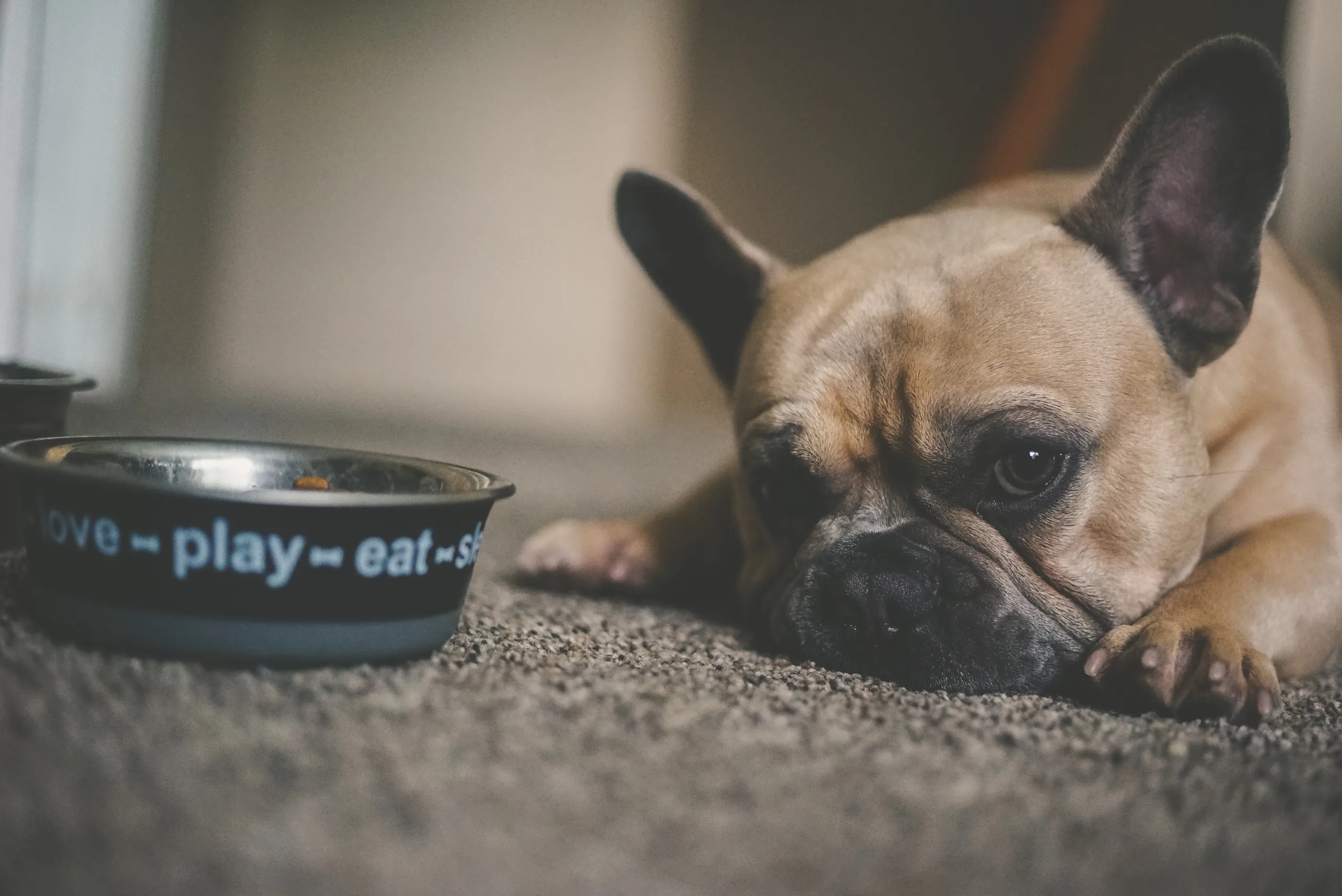Introduction
Colitis is a common gastrointestinal condition in dogs that causes inflammation of the colon. Dogs with colitis may experience diarrhea, abdominal pain, and discomfort. Proper nutrition plays a crucial role in managing colitis and promoting your dog’s overall well-being. In this comprehensive guide, we will explore what not to feed dogs with colitis, the foods that can aggravate the condition, and the importance of a safe and suitable diet to help your furry friend find relief and recovery.
For more about dogs click here
Understanding Canine Colitis
Colitis is characterized by inflammation of the colon, which can lead to various gastrointestinal symptoms. Common signs of colitis in dogs include frequent diarrhea, mucus or blood in the stool, straining to defecate, and abdominal discomfort. While colitis can be caused by various factors, dietary changes can significantly impact the condition and play a key role in its management.
What Not to Feed Dogs with Colitis
When managing colitis in dogs, it’s essential to avoid certain foods that can worsen gastrointestinal symptoms and exacerbate inflammation. The following foods are generally not recommended for dogs with colitis:
- High-Fat Foods: Fatty foods can be hard for dogs to digest and may lead to further irritation of the colon. Avoid feeding your dog greasy, fatty, or fried foods.
- Spicy Foods: Spices and seasonings, especially hot and spicy ones, can irritate the digestive system and worsen colitis symptoms.
- Raw or Undercooked Meat: Raw or undercooked meat may contain harmful bacteria that can exacerbate gastrointestinal issues.
- Dairy Products: Many dogs are lactose intolerant, and dairy products can lead to digestive upset and worsen colitis symptoms.
- High-Fiber Foods: While fiber can be beneficial in some cases, high-fiber foods can be challenging for dogs with colitis to digest and may cause additional discomfort.
- Sugary or Sweetened Foods: Sugary or sweetened foods can disrupt the balance of gut bacteria and contribute to gastrointestinal issues.
What Aggravates Colitis in Dogs
In addition to specific foods, certain factors can aggravate colitis in dogs:
- Stress: Stress and anxiety can trigger or worsen colitis symptoms in dogs. Minimize stressful situations and provide a calm and comfortable environment for your pet.
- Abrupt Diet Changes: Sudden changes in diet can disrupt the delicate balance of the digestive system and lead to gastrointestinal upset.
- Food Allergens: Some dogs may have food allergies or sensitivities that can contribute to colitis. Identifying and eliminating allergenic foods from their diet can be beneficial.
- Overfeeding: Overfeeding can strain the digestive system and lead to gastrointestinal issues. Follow recommended feeding guidelines and avoid excessive treats and table scraps.
Is Rice Good for Dogs with Colitis?
White rice is often recommended as a bland and easily digestible option for dogs with colitis. It can help firm up loose stools and provide a source of easily accessible energy. However, not all dogs with colitis will tolerate rice well. Some may have sensitivities to grains, and rice can exacerbate their symptoms. Always monitor your dog’s response to rice or any other food you introduce into their diet.
Foods That Can Irritate Colitis
In addition to the foods mentioned earlier, other foods that can irritate colitis in dogs include:
- Bones: Feeding bones can lead to gastrointestinal blockages or perforations, which can be life-threatening.
- Nuts and Seeds: Nuts and seeds are high in fat and can be difficult for dogs to digest, leading to gastrointestinal upset.
- Onions and Garlic: Onions and garlic can be toxic to dogs and can cause severe gastrointestinal issues.
- Grapes and Raisins: Grapes and raisins are toxic to dogs and can cause kidney damage.
The Importance of a Safe and Suitable Diet
A safe and suitable diet is crucial for managing colitis in dogs. Work with your veterinarian to determine the best diet for your pet based on their individual needs and sensitivities. In some cases, your vet may recommend a prescription diet formulated to support gastrointestinal health.
FAQs on What Not to Feed Dogs with Colitis?
1. What do I feed my dog with colitis?
A diet for a dog with colitis should consist of easily digestible, low-fat, and low-fiber foods. Bland options such as boiled chicken and white rice can be suitable for some dogs, but it’s essential to monitor their response.
2. What aggravates colitis in dogs?
Stress, abrupt diet changes, food allergens, and overfeeding can aggravate colitis in dogs.
3. Is rice good for dogs with colitis?
White rice can be a suitable option for some dogs with colitis as it is bland and easily digestible. However, not all dogs will tolerate rice well, and individual responses may vary.
4. What foods can irritate colitis?
Foods high in fat, spices, raw or undercooked meat, dairy products, high-fiber foods, and sugary or sweetened foods can irritate colitis in dogs. Additionally, bones, nuts, seeds, onions, garlic, grapes, and raisins should be avoided.
Conclusion
Managing colitis in dogs requires careful attention to their diet and nutrition. Avoiding foods that can worsen gastrointestinal symptoms is essential to promote your dog’s comfort and well-being. While rice can be a suitable option for some dogs with colitis, individual responses to food can vary, and it’s essential to work with your veterinarian to determine the best diet for your furry companion. By providing a safe and suitable diet, pet owners can help their dogs find relief from colitis and maintain a healthy digestive system.
